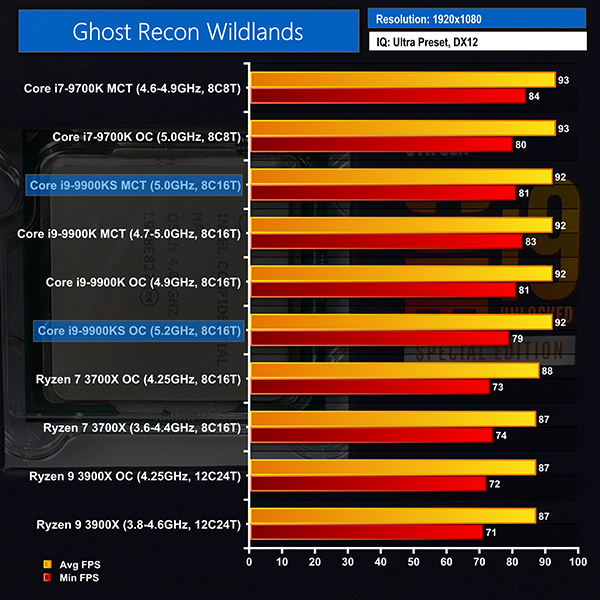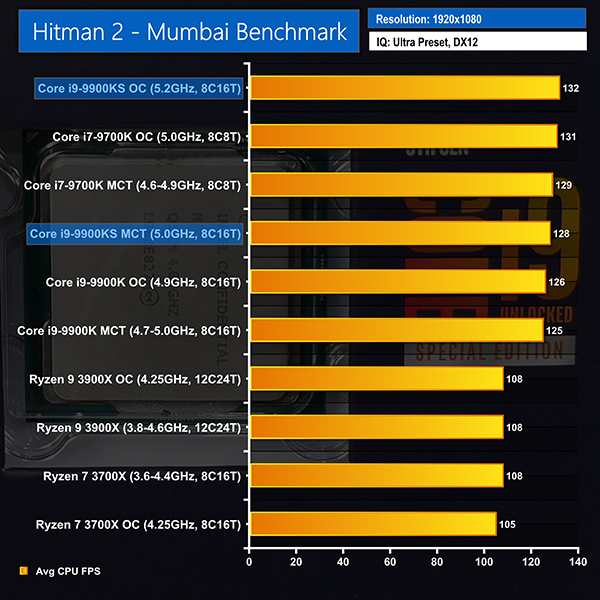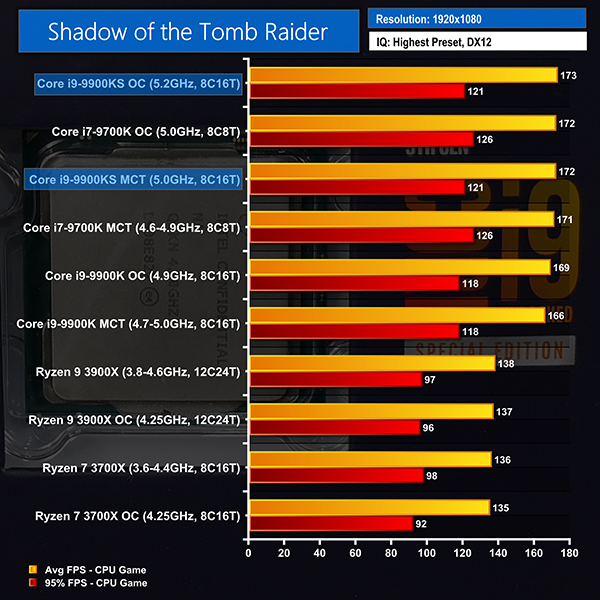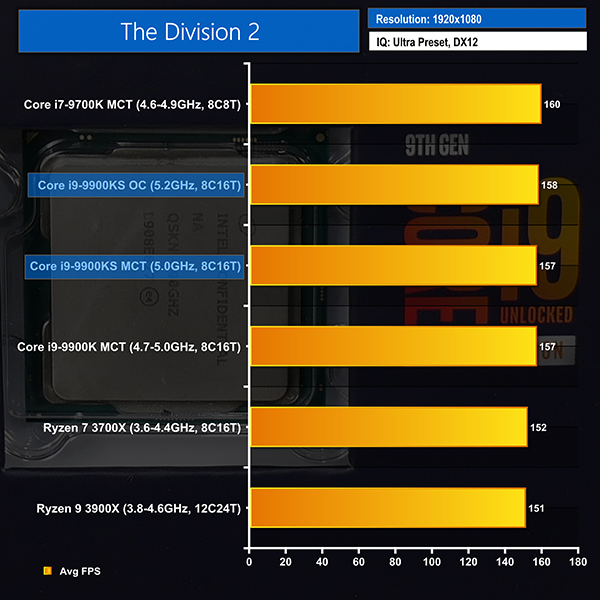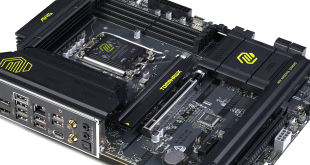Ghost Recon Wildlands
We run the built-in benchmark using a 1080P resolution and the Ultra quality preset.
Interestingly, Ghost Recon Wildlands tends to favour Intel’s non-Hyper-threading Core i7 at the very top of the chart. The 9900KS comes in at basically the same performance level as the 9900K, except for minor run-to-run variations that limit this benchmark’s consistency. AMD’s Ryzen 9 3900X is slower than the Core i9-9900KS, but the deficit is not huge in this title.
Hitman 2
We run the built-in benchmark using the Mumbai scene with image quality set to Ultra and the DirectX 12 mode enabled.
Another strong showing from the 9900KS in Hitman 2, this time beating the 9900K's average frame rate by 3 FPS stock versus stock. Intel's lead over AMD is clear in this title, albeit only most relevant to high refresh rate gamers.
Shadow of the Tomb Raider
We run the built-in benchmark using the DirectX 12 mode, anti-aliasing disabled, and the Highest quality preset.
Another chart-topping performance for the 9900KS in Shadow of the Tomb Raider. Realistically, the performance differences between the 5GHz i9 and the i7-9700K are within margin of error. However, the 9900KS manages to comfortably outperform AMD’s Ryzen 9 3900X, albeit at a frame rate that is already high enough even for most high refresh rate gamers.
The Division 2
We use the game's built-in benchmark with quality set to Ultra, VSync disabled, and DX12 mode.
The 9900KS is close to the top spot in The Division 2, with the Core i9 only having its average FPS value beaten by Intel’s Core i7-9700K which lacks Hyper-threading. The 9900KS performance lead over Ryzen 9 3900X is slim but measurable.
 KitGuru KitGuru.net – Tech News | Hardware News | Hardware Reviews | IOS | Mobile | Gaming | Graphics Cards
KitGuru KitGuru.net – Tech News | Hardware News | Hardware Reviews | IOS | Mobile | Gaming | Graphics Cards


